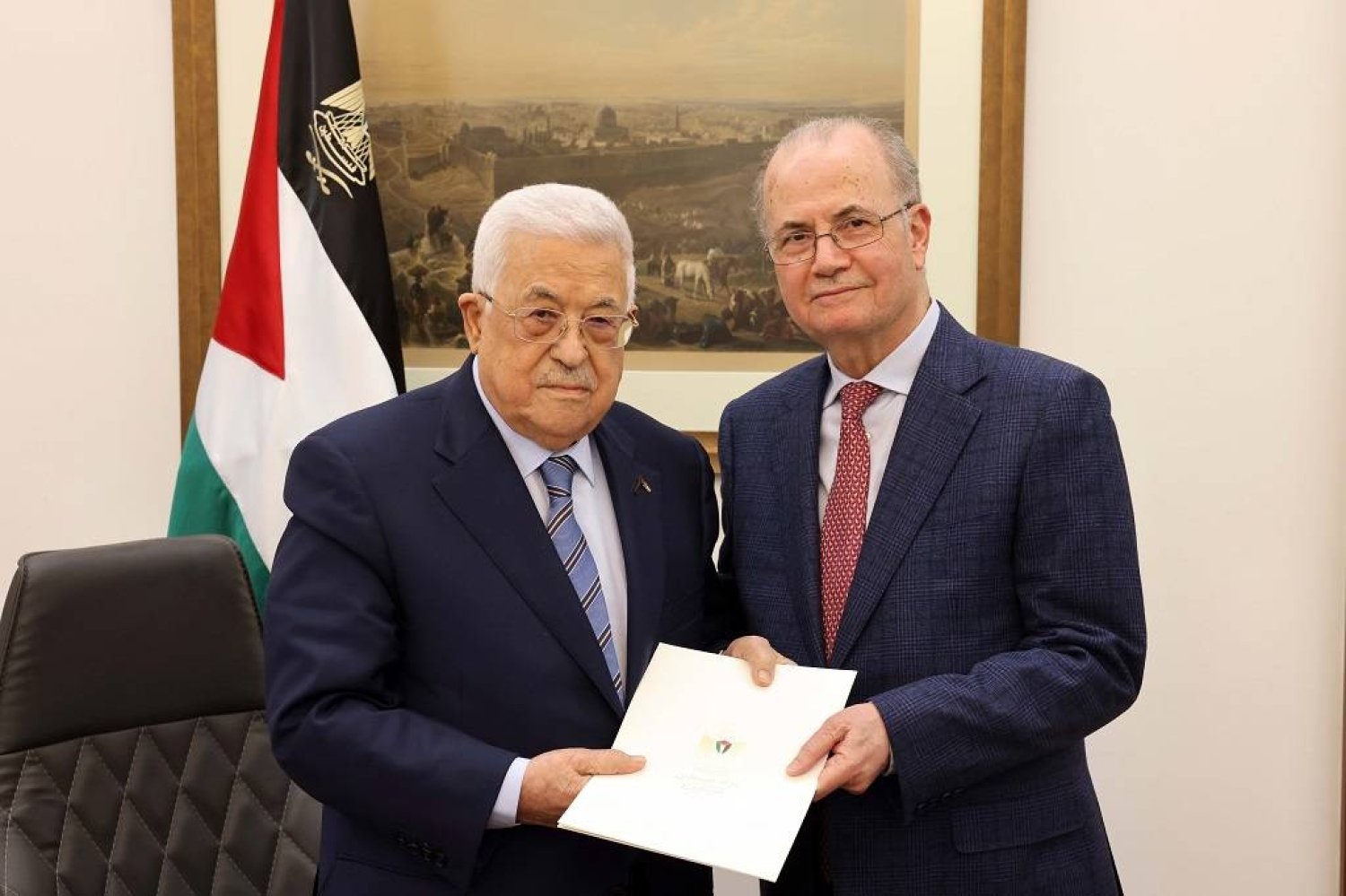Watan-Palestinian Authority President Mahmoud Abbas has tasked prominent economist Mohammed Mustafa with forming a new Palestinian government, the nineteenth in Palestinian governmental history. Mustafa will replace former Prime Minister Mohammed Shtayyeh, who resigned along with his government in February of the previous year.
According to the assignment text published by the Palestinian news agency WAFA, the new government will have eight priorities, including “leading and maximizing efforts and coordinating relief efforts for the Gaza Strip, and developing plans and mechanisms for the implementation of the process of reuniting institutions between Palestinian provinces as one geographical, political, national, and institutional unit.”
Mohammed Mustafa’s appointment (70 years old) comes after increasing pressure to reform the Palestinian Authority, which governs the occupied Palestinian territories, and to improve its governance in the occupied West Bank, where its headquarters are located.
“Gaza Governance Bid”
This announcement sparked controversy on social media, and prominent politician Dr. Yasser al-Za’atara criticized it, saying: “The appointment of Mohammed Mustafa is not reform, but rather Abbas’s hope to obtain the governance of Gaza before Dahlan precedes him.”
He added: “The West Bank is being overrun by death and settlement, and he is watching!.. So there is no victory for Gaza, nor any incentive from the West Bank.”
رئيس #سلطة_العار محمود عباس يكلف محمد مصطفى بتشكيل حكومة جديدة خلفا لمحمد اشتية #فلسطين
— د. ابراهيم حمامي (@DrHamami) March 14, 2024
Who is the new Palestinian Prime Minister?
Mohammed Abdullah Mohammed Mustafa, nicknamed “Safarini,” was born in the village of Kafr Sur in the Tulkarm Governorate on August 26, 1954.
Mustafa received his education in Tulkarm’s schools until 1969 when he was fifteen years old, at which point he moved with his family to Kuwait, where his father had been working since 1967. He completed his high school education there.
In 1972, he enrolled at the University of Baghdad, where he earned a Bachelor’s degree in Electrical and Electronic Engineering in 1976. In 1983, he joined George Washington University in the United States, where he obtained a Master’s degree in Management in 1985.
In the same year, 1985, he continued his studies at George Washington University, where he received a Ph.D. in Business Administration and Economics in 1988.
Mohammed Mustafa has previously held several positions in the Palestinian Authority, including membership in the Executive Committee of the Palestine Liberation Organization and the presidency of the Economic Department of the organization, as well as advisor to the Palestinian President on economic affairs.
He also chaired the board of directors of the Palestinian Investment Fund and served as Deputy Prime Minister for Economic Affairs in the fifteenth Palestinian government in 2013. He held the same position in the sixteenth Palestinian government in 2013 and 2014.
Economic Activity
In addition to his political work, Mustafa has launched several start-up companies. Alongside PalTel, he founded the National Mobile Company and the Resources Company for Natural Resources and Infrastructure, in addition to investment funds such as the Palestine Stock Exchange Fund and the Partnerships Fund for Small and Medium Enterprises.
In 2000, he served as an economic reform advisor in Kuwait. Prior to that, he was the chief advisor for privatization and public-private partnerships at the Public Investment Fund in Saudi Arabia between 1997 and 1998.
Technocratic Government
Palestinian and European diplomatic officials and a senior U.S. official say that Mohammed Mustafa will have several weeks to form a government, during which current Palestinian Authority Prime Minister Mohammed Shtayyeh, whose term has ended, will remain in office.
Officials say that Mustafa has been consulting with potential cabinet members in recent weeks, and it is expected that the members will be a group of technocrats not affiliated with Fatah, led by Abbas – many of whom have received education in the West.
